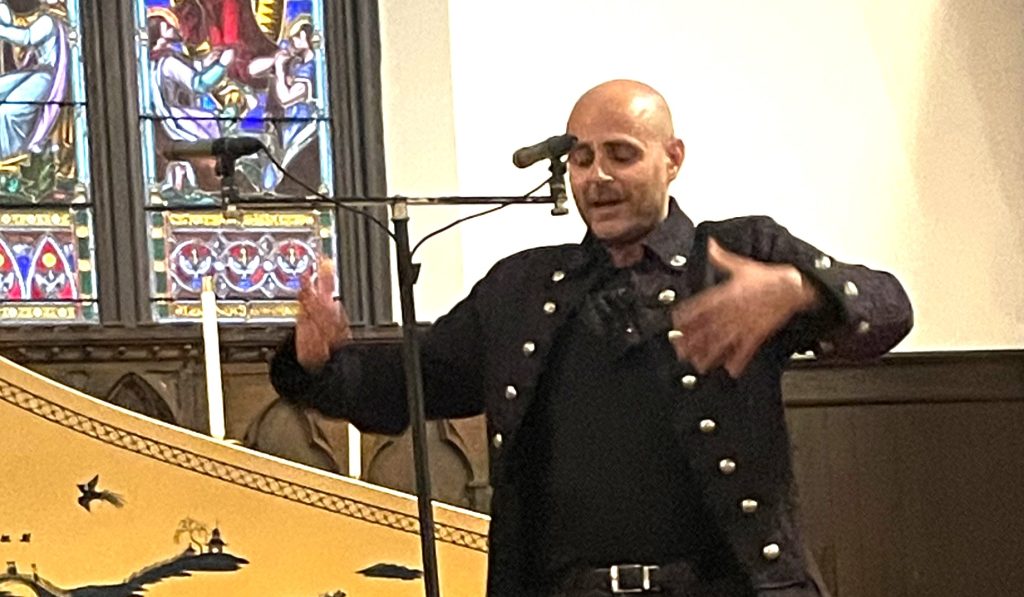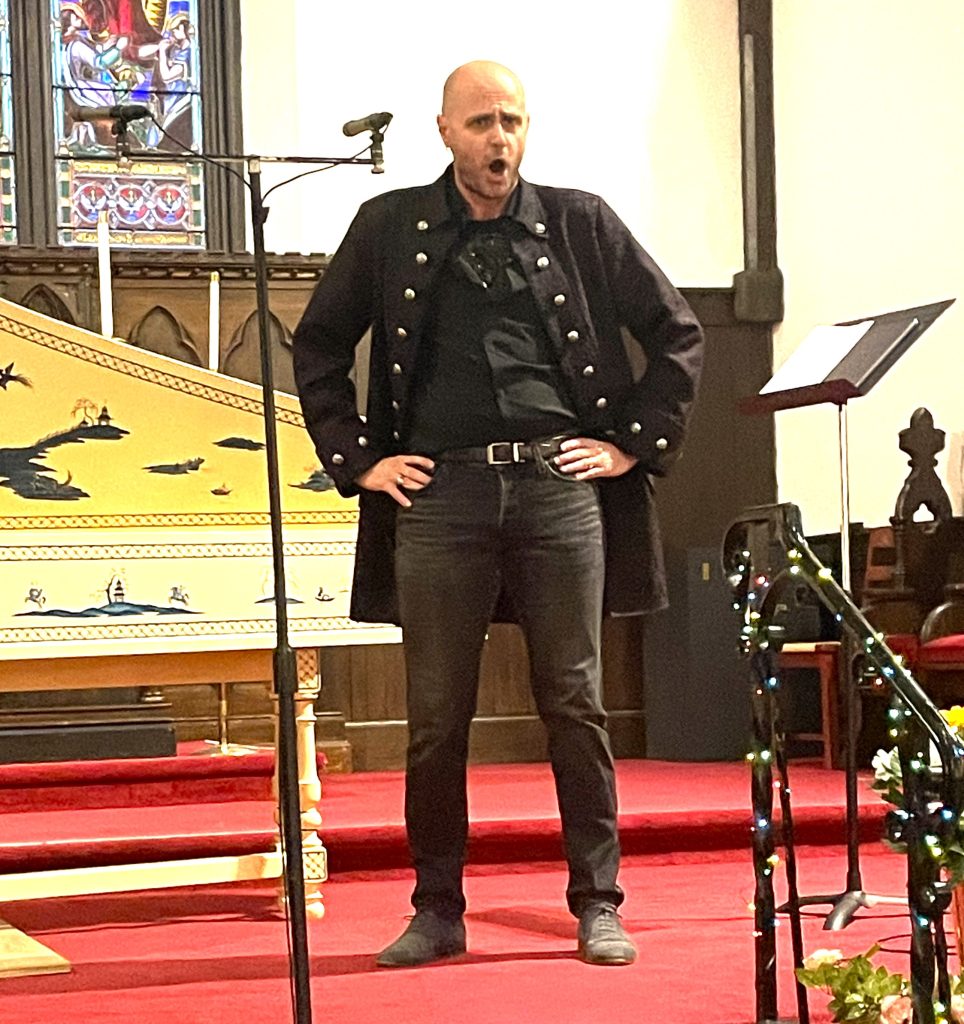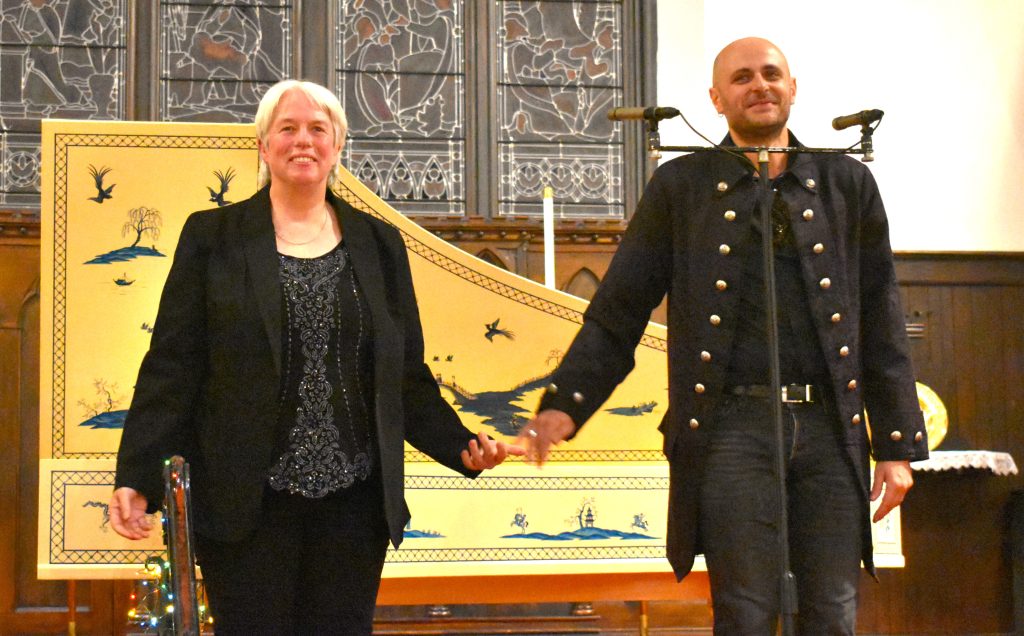
by Kevin T McEneaney
For one hour at Trinity Church in Lakeville, Countertenor Nicholas Tamagna held forth with a formidable menu of excerpts from the seventeenth and eighteenth centuries with harpsichord keyboard backing by Christine Gevert. Tamagna has performed in about thirty opera productions by George Frederic Handel, quipping that only Handel was keeping countertenors in business. One of the reasons Handel was able to compose so quickly was that he invented a musical cheat sheet, assigning particular emotions to every key available; this allowed him to get to work promptly.
Tamagna opened with “Cold Song” by Henry Purcell from the opera King Arthur (1691), which asserted shivering vigor in the face of frost, charging that it was the devil below who created frost and may do him in shortly with a fierce frost. Despite the fierce denunciation of frost, the song was leavened with a humor that turned frost into a jolly companion who could easily be ridiculed, even if your bed was composed of snow!
As a countertenor, Tamagna has a pleasant voice, whereby his diaphragm emits melodious sounds that resemble giant snowflakes or flickering flames of fire.

“They tell us that your mighty powers” from The Indian Queen” (1695) articulates the paradox that love can be an aspect of suffering to ease the pains of one who is in love. Tamagna’s voice rang with such acute irony that the singer momentarily imagined he was a deity….
Switching to Italian, he sang “Usurpator tiranno, a long aria by” Giovanni Felice Sances, expressing an impossible, desperate love for Lilla, declaring that he will never give in, despite the impossible situation.
From Handel’s Guilio Cesare in Egitto (1724), sung in Italian (the proper language of all opera with open vowel sounds), “Va tacito nascosto” (Silently and stealthily, here burdened with the ugly sound of hissing English), a short aria complaining of a spy. Yes, the vowels were lovely, even in such a dire situation.

From Handel’s Tolomeo (1728), quite popular in its day, “Domerò la tua fierezza (I will tame this fierce pride of yours), a curse which is directed to a rival for the throne of Egypt, comparing his rival to Icarus.
In a more romantic vein, “Da te parto et parto afflitto” (I leave you, and I depart in sorrow) by Aria Venceslao (c.1725) exhibited crushing anguish with confusing derangement, disorientation, evoking deep sorrow…
“Alla caccia dell’alma e dé cori (In pursuit of souls and hearts) by Antonio Vivaldi (c.1725), where love is compared to the chase of a hunt that will ensnare a man, exuded an extroverted reality with density and buoyant clarity that was refreshing and here sung with convincing authority.
“Alto Giove” (Almighty Jupiter, 1735) by Nicola Porpora offered a cosmic prayer to the Creator with honest warmth and a sincerity from Tamagna that was deeply moving.
He concluded the concert with a remarkable “Evening Hymn” (c.1680s) by Henry Purcell that offered a vision of ethereal transcendence.
Throughout the concert, Christine Gevert offered unexpected, sudden trills of ornamentation on the harpsichord, attaching improvised sidebars that expanded the languages of the recital by Nicholas Tamagna, who sang from memory.
